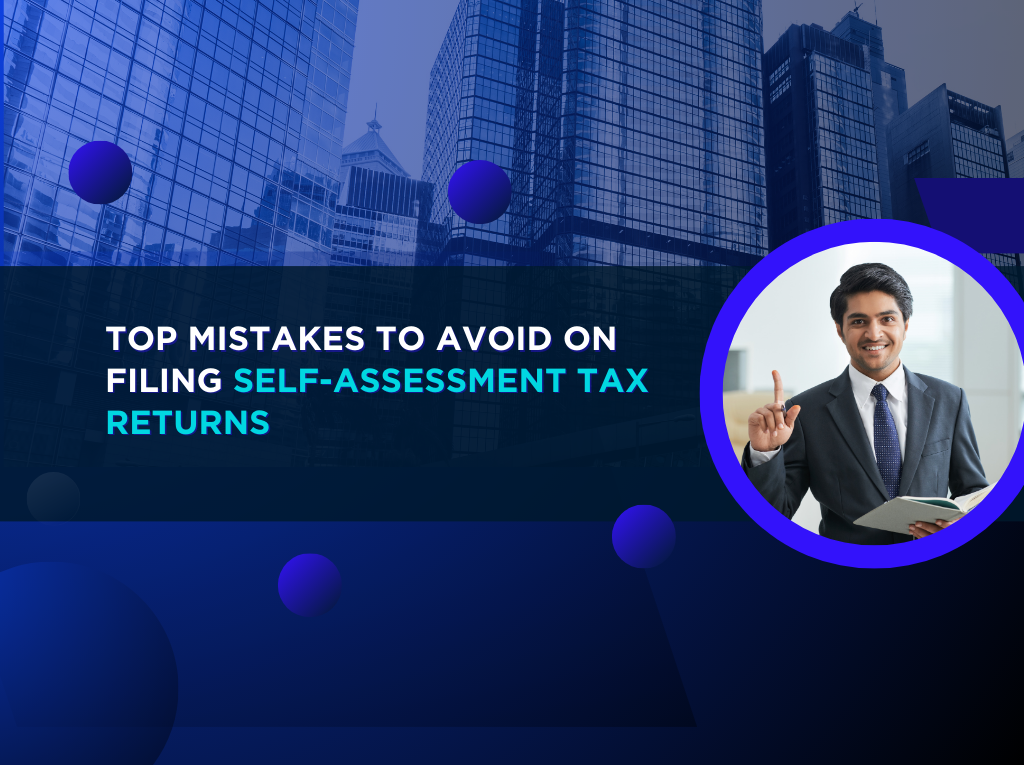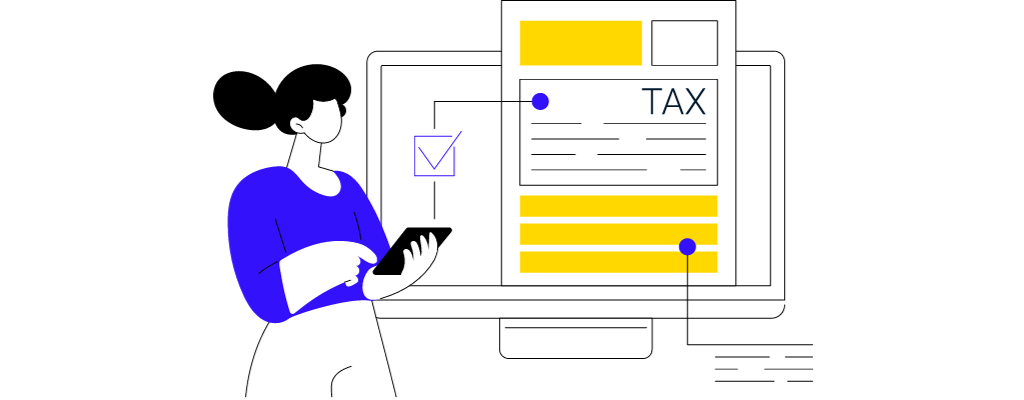
HMRC uses the Self Assessment system to collect Income Tax from people whose income isn’t taxed automatically for example, profits from a business, property income, or freelance work.
Your return shows your total earnings and sources for a given tax year. Most business owners and self-employed individuals must file their Self Assessment tax return and pay any tax due by midnight on 31 January each year.
Need a quick recap of the process? Check out our guide on How to File Your Self Assessment Tax Return.
When Is the Self Assessment Deadline?
For the 2023–24 tax year, the online filing deadline is 31 January 2025, while paper returns must be filed by 31 October 2024.
You must also pay any outstanding tax by this date, including your first payment on account if required.
For a detailed timeline of important dates, visit When Is the Self Assessment Tax Deadline? updated with 2025 deadlines.

Common Mistakes to Avoid When Filing Your Self Assessment Tax Return
It’s easy to make errors when you’re rushing to meet the deadline. Here are the most frequent mistakes people make and how to steer clear of them.
It’s common to find yourself rushing to finish your tax return when the deadline approaches. Many people commit the most typical mistakes in the annual rush to file before the Self-Assessment deadline. These helpful guidelines can help you avoid them.
1. Entering the Wrong UTR or NI Number
Providing an incorrect or missing Unique Taxpayer Reference (UTR) or National Insurance (NI) number can delay or invalidate your return.
If you’ve misplaced your UTR, you can find it in your Personal Tax Account, the HMRC app, or previous correspondence.
If you’re unsure what documents you need, our Self Assessment Documentation Checklist for Accountants has everything covered.
2. Forgetting Pension Contributions
Include all pension contributions accurately underreporting means losing tax relief, while overreporting can trigger HMRC adjustments.
You can read more about allowable and non-allowable claims in Making a Claim for Non-Allowable Charges, which explains what expenses qualify under HMRC guidelines.
3. Failing to Declare All Income Sources
Remember to report all taxable income, including:
- Rental profits
- Dividends and investments
- Capital gains from property sales
- Freelance or gig income (e.g., Patreon, Twitch, or Ko-fi)
Our post on Rental Income and Self Assessment explains how to declare property earnings correctly.
If you’ve received SEISS or COVID-related support, include those too.
4. Claiming Non-Allowable Expenses
Be cautious when deducting business costs. HMRC only allows expenses that are “wholly and exclusively” for business use.
For an accountant’s perspective on this, see 5 Compelling Reasons to Hire an Accountant for Your Self Assessment Tax. Professional guidance helps avoid costly disallowances.
5. Missing Out on Tax-Free Allowances
Don’t forget the key 2024–25 allowances:
- Personal Allowance: £12,570
- Marriage Allowance: 10% transferable
- Personal Savings Allowance: up to £1,000 (basic rate)
- Dividend Allowance: £500
Also, if your income exceeds £50,000 and you receive Child Benefit, you may need to repay some of it under the High-Income Child Benefit Charge.
Learn how missed filings and wrong claims can lead to penalties in Low Earners Fined for Not Filing Unnecessary Self Assessment Returns.
6. Leaving It Too Late
Rushing leads to mistakes. Start early gather P60s, receipts, bank statements, and invoices before you begin.
If you’re filing close to the deadline, read our Last-Minute Self Assessment Filing Tips to avoid stress and late penalties.
Common Issues and How to Resolve Them
Even experienced taxpayers encounter challenges. From login errors to submission glitches, these problems are avoidable with preparation.
Explore Issues One Might Face When Filing Self Assessment Tax Returns Online for practical solutions to common technical and data-entry problems.
Need Expert Help?
Filing can feel complex especially with changing tax rules each year. If you’re unsure, getting professional assistance is worth it.
Connect with Outbooks for expert Self Assessment support and peace of mind:
Contact Outbooks
FAQs
1. What is a Self Assessment tax return?
A Self Assessment tax return is the system HMRC uses to collect Income Tax from individuals and businesses whose income isn’t automatically taxed. This includes self-employed professionals, landlords, and company directors.
2. When is the deadline for filing a Self Assessment tax return in 2025?
For the 2023–2024 tax year, online returns must be filed by midnight on 31 January 2025. Paper returns are due by 31 October 2024, and all tax owed must also be paid by 31 January 2025.
3. What are the most common mistakes people make when filing a Self Assessment tax return?
Common mistakes include entering the wrong UTR, missing pension contributions, failing to declare all income sources, claiming non-allowable expenses, and filing late. Reviewing your records early and seeking professional advice can help prevent these errors.
4. What happens if I miss the Self Assessment deadline?
Missing the deadline can result in immediate penalties from HMRC starting from £100 for being up to 3 months late, plus additional daily and percentage-based fines depending on how late your return or payment is.
5. Should I hire an accountant to help with my Self Assessment tax return?
Hiring a qualified accountant can save you time, reduce stress, and ensure full compliance with HMRC rules especially if you have multiple income sources or complex finances. Learn more in 5 Compelling Reasons to Hire an Accountant for Your Self Assessment Tax
Parul is a content specialist with expertise in accounting and bookkeeping. Her writing covers a wide range of accounting topics such as payroll, financial reporting and more. Her content is well-researched and she has a strong understanding of accounting terms and industry-specific terminologies. As a subject matter expert, she simplifies complex concepts into clear, practical insights, helping businesses with accurate tips and solutions to make informed decisions.

